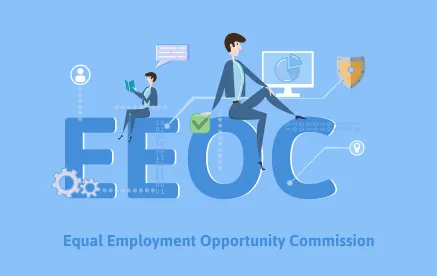On May 28, 2021, the U.S. Equal Employment Opportunity Commission (“EEOC”) issued an update to its December 2020 guidance regarding COVID-19 vaccinations and incentive programs. The long-awaited guidance provides clarification regarding mandatory vaccinations, employer and third-party provided vaccine incentives, and confidentiality of vaccination information. The EEOC guidance left open some questions surrounding vaccine incentives, including what incentives will be deemed so substantial as to be coercive, and whether employers must offer incentives to workers who cannot receive the COVID-19 vaccine for religious or medical reasons.
Recap of December 2020 EEOC Guidance
On December 16, 2020, the EEOC issued vaccine guidance as employers began to navigate the complex vaccine deployment process, including grappling with whether to mandate vaccines for all employees. In its December guidance, the EEOC implied that requiring a vaccination as a condition of returning to the workplace was not unlawful per se, provided employers satisfied certain requirements. The EEOC guidance also clarified that employers seeking to mandate vaccinations may be obligated to provide reasonable accommodations to qualified individuals with disabilities and employees with sincerely held religious beliefs which prevent them from receiving the vaccine, unless doing so would cause an undue hardship to the employer.
The December guidance left open a number of questions, including whether employers may mandate COVID-19 vaccinations and whether employers may incentivize employees to obtain vaccinations. A detailed analysis of the EEOC’s December guidance can be found here.
EEOC Blesses Mandatory Vaccinations in Most Cases
The EEOC’s updated guidance makes clear that, subject to limited exceptions (including the duty to provide a reasonable accommodation to employees who cannot receive the vaccination for medical or religious reasons), employers may lawfully require a COVID-19 vaccination for all employees entering the workplace under the Americans with Disabilities Act (“ADA”) and Genetic Information Non-Discrimination Act (“GINA”). Employers that mandate COVID-19 vaccinations must administer such a policy in a non-discriminatory manner and recognize the potential disparate impact of such a policy on certain protected categories of workers.
ADA Implications for Voluntary Employer Vaccination Incentive Programs
Vaccine incentive programs potentially implicate the ADA, which prohibits discrimination against qualified individuals with disabilities. The ADA prevents employers from asking employees “disability-related inquiries” and subjects confidential medical information to a heightened level of protection. The ADA also mandates that workplace health initiatives be voluntary if they solicit medical details from participants, like the result of a health screening or an individual’s medical history.
The new EEOC guidance makes clear that under the ADA, employers may legally offer an incentive to employees to voluntarily provide documentation or other confirmation that they received a vaccination on their own from a third party, including a pharmacy, public health department, or other health care provider in the community. The EEOC clarified that such a request is “not a disability-related inquiry covered by the ADA.” The employer, however, is required to keep such vaccination information confidential pursuant to the ADA. Documentation showing that an employee received a COVID-19 vaccination qualifies as confidential medical information under the ADA, which is subject to a heightened level of protection.
The guidance differs, however, if the employer itself is sponsoring the vaccination program. The EEOC explained that under the ADA, an employer may offer an incentive to employees for voluntarily receiving a vaccination administered by the employer or its agent “if any incentive (which includes both rewards and penalties) is not so substantial as to be coercive.” Because vaccinations require employees to answer pre-vaccination disability-related screening questions, a significant incentive could make employees feel pressured to disclose protected medical information, which is prohibited by the ADA. The EEOC did not explain or provide any examples of what incentives will be considered “so substantial as to be coercive” where the employer itself is administering the vaccination program.
GINA Implications for Voluntary Employer Vaccination Incentive Programs
Incentives for vaccinations and related medical information also implicate protected information under GINA, which prohibits employers from discriminating against an employee because of genetic information. Under GINA, “genetic information” can include genetic tests and family medical history.
The updated EEOC guidance makes clear that employers do not violate GINA by incentivizing employees to submit confirmation of their vaccination status from third parties. The EEOC explained that vaccination status is not considered genetic information or family medical history under GINA. Likewise, an employer does not violate GINA by offering an incentive for employees to provide documentation of the vaccination status of an employee’s family member if that family member received a vaccine from a third party.
The EEOC’s guidance differs when the employer or the employer’s agent offers vaccinations to the employee or the employee’s family member. Unlike third party vaccinations, employer-offered vaccinations require the employer to ask screening questions that elicit medical information. Employers may offer incentives for employees to be vaccinated by the employer as long as the employer does not obtain genetic information from the employee. The pre-vaccination screenings for the three approved vaccines do not inquire into genetic information. Therefore, if employers plan to offer vaccines to employees, they should limit pre-screening questions to the CDC’s Pre-vaccination Checklist.
Employers may not, however, offer incentives for an employee’s family member to be vaccinated by the employer. Such an incentive violates GINA, because the pre-screening questions would elicit information regarding the family medical history of the employee. Under GINA, it is illegal to elicit family medical history of an employee by offering an incentive. Nonetheless, an employer may offer vaccines to family members of an employee without offering an incentive. If an employer offers vaccines to family members without incentivizing receipt of the vaccine, medical information received from the family member must be kept confidential and not provided to any supervisor, manager, or other person who can affect the terms and conditions of employment of the employee. Additionally, the employer must obtain a knowing, voluntary, and written authorization from the family member before asking questions about their medical conditions.
What if My Employee Cannot Take the Vaccine for Medical or Religious Reasons?
The updated guidance maintains the EEOC’s position that an employer requiring its employees to obtain a COVID-19 vaccination must reasonably accommodate employees who are unable or unwilling to get vaccinated because of a disability or sincerely held religious belief, practice, or observance. Under the ADA, employers must offer disabled employees a reasonable accommodation to enjoy the same “benefits and privileges of employment” afforded to their peers who do not have a disability unless the accommodation would impose an undue hardship on the employer’s business operations. Similarly, Title VII requires employers to accommodate a worker’s sincerely held religious beliefs unless doing so would cause an undue hardship. Under both the ADA and Title VII, the reasonable accommodation is intended to be an individualized, fact-based, and interactive process between the employer and the employee.
The new EEOC guidance does not, however, provide any guidance regarding whether employers must offer workers with religious or medical objections to the COVID-19 vaccine the option to receive the incentive as well, even though they are not receiving the vaccine. Absent guidance, questions remain regarding whether businesses should offer alternatives for workers who do not receive the vaccine for medical or religious reasons to nevertheless qualify for the incentive.
Practical Takeaways for Employers
-
Consider and assess the EEOC’s updated guidance and related issues before implementing a COVID-19 vaccination incentive program to ensure appropriate procedures and safeguards are in place to comply with the ADA, Title VII, GINA, and other federal and state laws.
-
If employers plan to offer vaccines to employees, the employer should limit pre-screening questions to the CDC’s Pre-vaccination Checklist.
-
Employers must maintain confidentiality of documentation showing that an employee received a COVID-19 vaccination or medical information received from an employee’s family member
-
If employers choose to implement a COVID-19 vaccination incentive policy, they must ensure that it clearly reflects the rights afforded by and obligations imposed by federal and state laws.
-
Employers that already have COVID-19 vaccination incentive policies and programs in place should update those policies to account for this new guidance.
As set forth in this blog, unanswered questions remain regarding implementing a COVID-19 vaccination incentive program. This article is not intended to be unequivocal, one-size-fits-all guidance, but instead represents our interpretation of the current guidance. This article does not address the potential impacts of the numerous other local, state, and federal orders that have been issued in response to the COVID-19 pandemic, including, without limitation, potential liability should an employee become ill, requirements regarding family leave, sick pay, and other issues.




 />i
/>i
